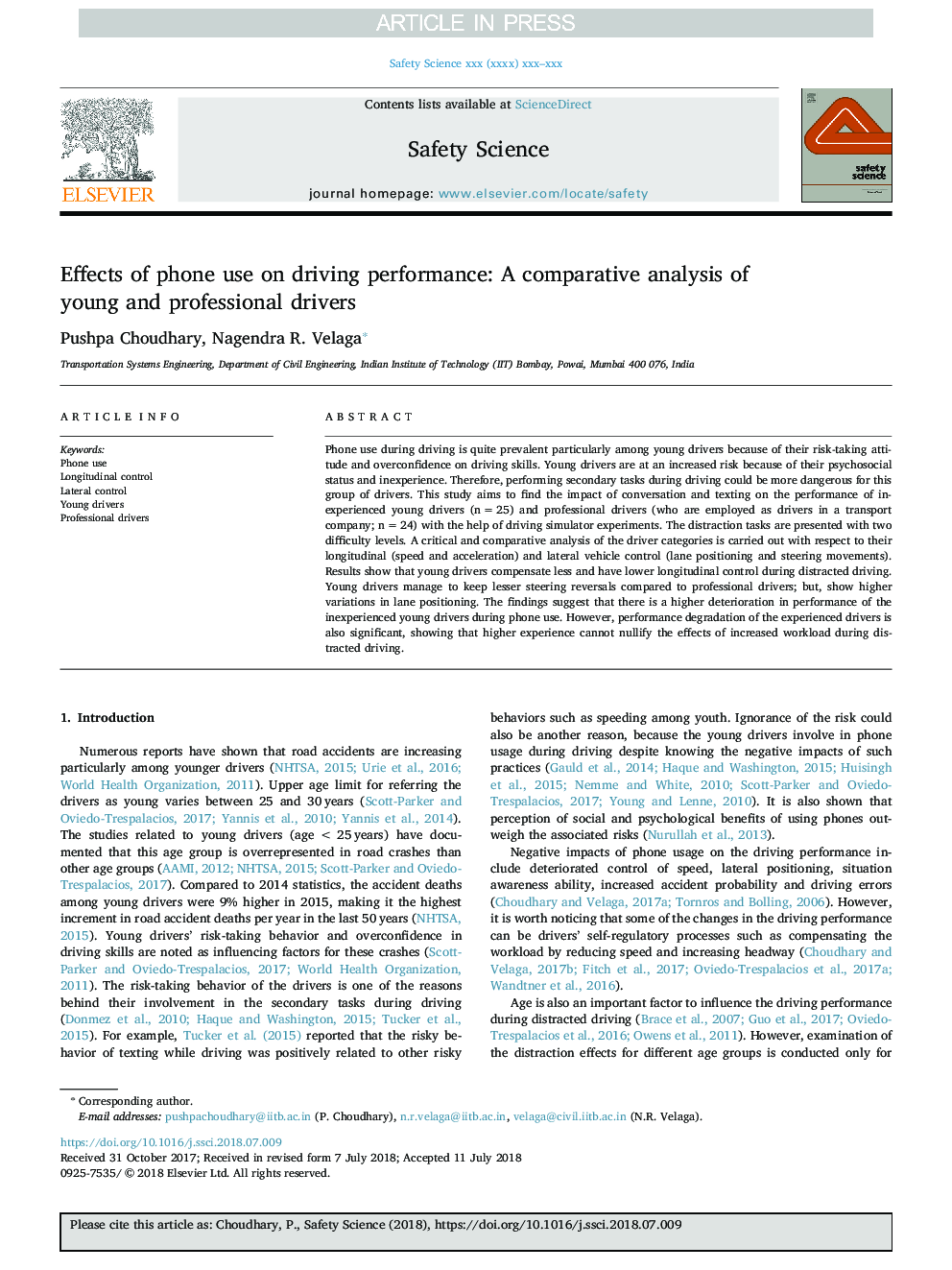| Article ID | Journal | Published Year | Pages | File Type |
|---|---|---|---|---|
| 11263397 | Safety Science | 2019 | 9 Pages |
Abstract
Phone use during driving is quite prevalent particularly among young drivers because of their risk-taking attitude and overconfidence on driving skills. Young drivers are at an increased risk because of their psychosocial status and inexperience. Therefore, performing secondary tasks during driving could be more dangerous for this group of drivers. This study aims to find the impact of conversation and texting on the performance of inexperienced young drivers (nâ¯=â¯25) and professional drivers (who are employed as drivers in a transport company; nâ¯=â¯24) with the help of driving simulator experiments. The distraction tasks are presented with two difficulty levels. A critical and comparative analysis of the driver categories is carried out with respect to their longitudinal (speed and acceleration) and lateral vehicle control (lane positioning and steering movements). Results show that young drivers compensate less and have lower longitudinal control during distracted driving. Young drivers manage to keep lesser steering reversals compared to professional drivers; but, show higher variations in lane positioning. The findings suggest that there is a higher deterioration in performance of the inexperienced young drivers during phone use. However, performance degradation of the experienced drivers is also significant, showing that higher experience cannot nullify the effects of increased workload during distracted driving.
Related Topics
Physical Sciences and Engineering
Chemical Engineering
Chemical Health and Safety
Authors
Pushpa Choudhary, Nagendra R. Velaga,
